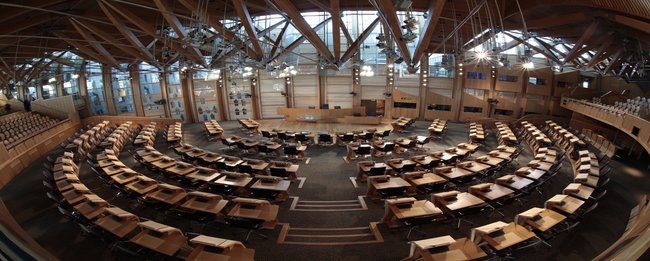If talking about fairness was the key to delivering it, Scotland would already be a beacon of equality.
In the last Parliament, there was certainly no shortage of welcome initiatives to help make Scotland fairer: from the Fairer Scotland discussion and the Fair Work Convention, to the new goal of reducing inequality at the heart of the economic strategy. The foundations for progress towards a more equal and socially just Scotland have been laid.
It is too early to judge what impact these initiatives will have on the lives of people in poverty in Scotland. We will watch this closely as they develop further, recognising that while the Scottish Parliament does not have all the levers of power it does have more than ever – including new levers over tax and social security. Five years from now, how should we judge how well those powers have been used?
Will one in five people in Scotland still be living in poverty? Will more than 130,000 people still have no option but to rely on emergency food aid? Will a fifth of the workforce still earn less than the living wage? Will we be able to point to practical measures that will actually help narrow the economic inequality gap?
And more broadly, will Scotland have shown meaningful progress in delivering the UN’s Sustainable Development Goals, whilst also tackling the mismatch between our ambitious climate targets and what we actually achieve in practice?
As a new Parliament begins, there are reasons to be optimistic. We were particularly encouraged by a series of manifesto commitments made by all of the parties represented in the Parliament, many of which reflect the priorities we outlined.
For example, Scottish Labour’s commitment to an Anti-Poverty Bill and the Scottish Liberal Democrats’ recognition that everyone benefits if “extremes of wealth and power are being reduced”. These chime with the SNP’s commitment to establish a Poverty and Inequality Commission. This body should be established as soon as possible and must be allowed to move beyond statements of concern to recommending and securing specific changes in policy.
We were also heartened by the substantial cross-party focus on enhancing the quality of work. Our recent research on “Decent Work” provides ample evidence of why low-paid workers are right to be impatient for faster progress. The SNP’s promised Labour Market Strategy must enhance the quality of work for people in Scotland, particularly the large numbers of women working in low paid sectors such as social care, retail
and hospitality.
On food security, the SNP’s commitment to a new “Food Sustainability Plan” to ensure “everyone can feed themselves” deserves cross-party support, although the fact that it is needed at all should be a source of deep shame to us all. The Plan must be about preventing the acute income crises that lead to food insecurity.
Across the party manifestos, there was a welcome focus on providing a more dignified and effective safety net; the Scottish Conservatives’ rightly stated that the welfare system “should support our most vulnerable”. Right now, it is failing far too many people.
Underpinning efforts to tackle poverty and inequality must be measures to rebalance power .The Scottish Greens outlined a refreshingly strong commitment to citizen-led local governance.
But we cannot judge this Parliament’s success on domestic progress alone.
We are hugely encouraged that every party in the Parliament backs Scotland’s International Development Fund; its value must now be maintained in real terms.
Amid unprecedented strain on the global humanitarian system, the SNP’s commitment to allocating at least £1m per year to emergency response through a new Fund requires immediate delivery, as do measures to strengthen Scotland’s contribution to supporting refugees. These commitments couldn’t be timelier with the World Humanitarian Summit in Istanbul this month and the first ever Refugee Summit at the UN in September.
On climate change, the SNP’s pledge to introduce a new Climate Change Bill with enhanced emission reduction targets will count for little unless it also contains practical measures to reduce Scotland’s carbon footprint. If it does, the Bill – when combined with swift delivery of the SNP’s £3 million per year commitment to help those on the frontline of climate change – will reinforce Scotland’s strong commitment to climate justice.
Ultimately, this Parliament’s success will come down to the choices made. Will it prioritise economic growth without sufficient regard to its quality or distribution? Or will it prioritise tackling poverty and inequality and create a society in which everyone has the social foundations they need to live a good life within environmental limits?
If we make the right choices now, all our talk about fairness will be worth it.
This opinion piece was published in The Herald on 24 May 2016
Image © Scottish Parliamentary Corporate Body
